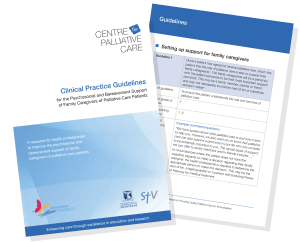Loss, and the anticipation of loss, is a hallmark of a terminal illness.
Loss is progressive and, for many diseases, relentless. Losses include: a sense of a healthy body and personal control, family role, future plans and goals, employment, function and hope. These losses bring with them changes that the person with a life limiting illness has to incorporate into a constantly changing lifestyle.
There are a wide range of emotional, cognitive and behavioural reactions to these losses depending on the person, time and level of acceptance. Although it should never be assumed, unresolved loss can contribute to symptoms that are difficult to control.
How to Help
Listen and encourage the person to talk about the losses as they occur, as this can help. Sometimes you are the only person the patient has to talk about his/her losses.
Discussion can help to find strategies to deal with the losses. An invitation to the patient for a follow-up visit to discuss his/her feelings can assist. It may be appropriate to identify a ‘good listener’ in the patient’s social network who can help them deal with the multiple losses they experience.
Referral to a specialist nurse, social worker, counsellor may be appropriate depending on the circumstances.
Useful Resources

Grief Australia (formerly Australian Centre for Grief and Bereavement)
Provides a statewide specialist bereavement service for individuals, children and families who need assistance following the death of someone close to them.
Visit website
Caregiver Psychosocial and Bereavement Support Guidelines
Clinical practice guidelines for health professionals to improve the psychosocial and bereavement support of family caregivers of palliative care patients.
Read more